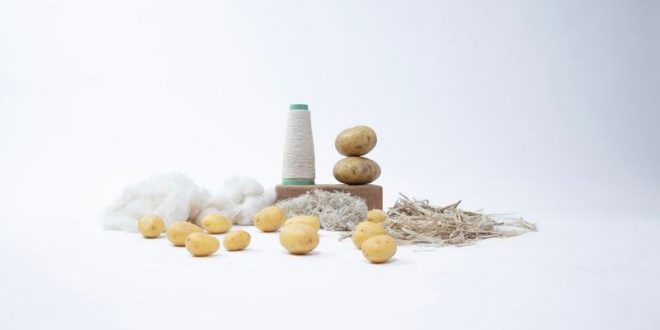Innovating the Textile Industry with Agricultural Waste
The agricultural industry has long sought innovative solutions to reduce waste and improve sustainability. Fibe, a pioneering material science company, has made a significant breakthrough by transforming potato harvest waste into high-quality textile fibers. This achievement not only addresses the problem of agricultural waste but also sets a new standard for sustainable textile production.
Fibe’s commitment to sustainability and innovation was recently recognized with the Fashion District 2024 Manufacturing Futures award, accompanied by a prize of GBP15,000. This accolade highlights the company’s exceptional work in creating the world’s first textile fibers from potato harvest waste.
Idan Gal-Shohet, co-founder of Fibe, expressed his excitement about winning the award: “I’ve known many startups in this program for a long time and have so much respect for them, which is why winning this prize means so much to us. The funding will be used to expand our business, so we can harvest a variety of different crops and create better conditions for farmers around the world. Our mission in the end is to create materials that use far fewer environmental resources than what’s currently available.”
Fibe’s innovative process addresses a significant issue in agriculture: the disposal of potato stems and leaves. These byproducts, which constitute the largest underutilized agricultural feedstock globally, are typically incinerated or left to decompose, providing no commercial benefit. Fibe’s patent-pending technology can potentially transform up to 70% of the global demand for natural fibers by utilizing these waste streams.
The textiles produced from potato waste offer several advantages. They are comparable to traditional fibers like polyester and cotton in terms of quality and versatility. The fibers are soft, with a diameter similar to cotton, making them suitable for a wide range of applications from lightweight shirts to heavy-duty canvas. Additionally, they outperform traditional bast fibers like hemp and linen in softness and strength.
Environmental impact is a crucial consideration in Fibe’s innovation. The company’s proprietary fiber extraction techniques use significantly fewer resources compared to conventional cotton production. Specifically, Fibe’s process requires 99.7% less water, generates 82% fewer carbon emissions, and does not necessitate any additional land use.
Fibe is also developing a suite of technologies to enhance fiber extraction efficiency. Their patent-pending biological approach allows for fiber harvesting from agricultural waste without harsh chemicals, customizable to meet specific brand requirements. This automated production line approach ensures cost-effectiveness and scalability, essential for widespread adoption.
The industry has recognized Fibe’s potential, as evidenced by multiple Innovate UK grants totaling GBP785,000 and a successful GBP1m pre-seed investment round led by Tin Shed Ventures, Patagonia’s corporate venture arm, with contributions from Alante Capital, PDS Ventures, First Imagine!, and several angel investors. This financial support underscores the confidence in Fibe’s vision to revolutionize the textile industry with sustainable solutions.







